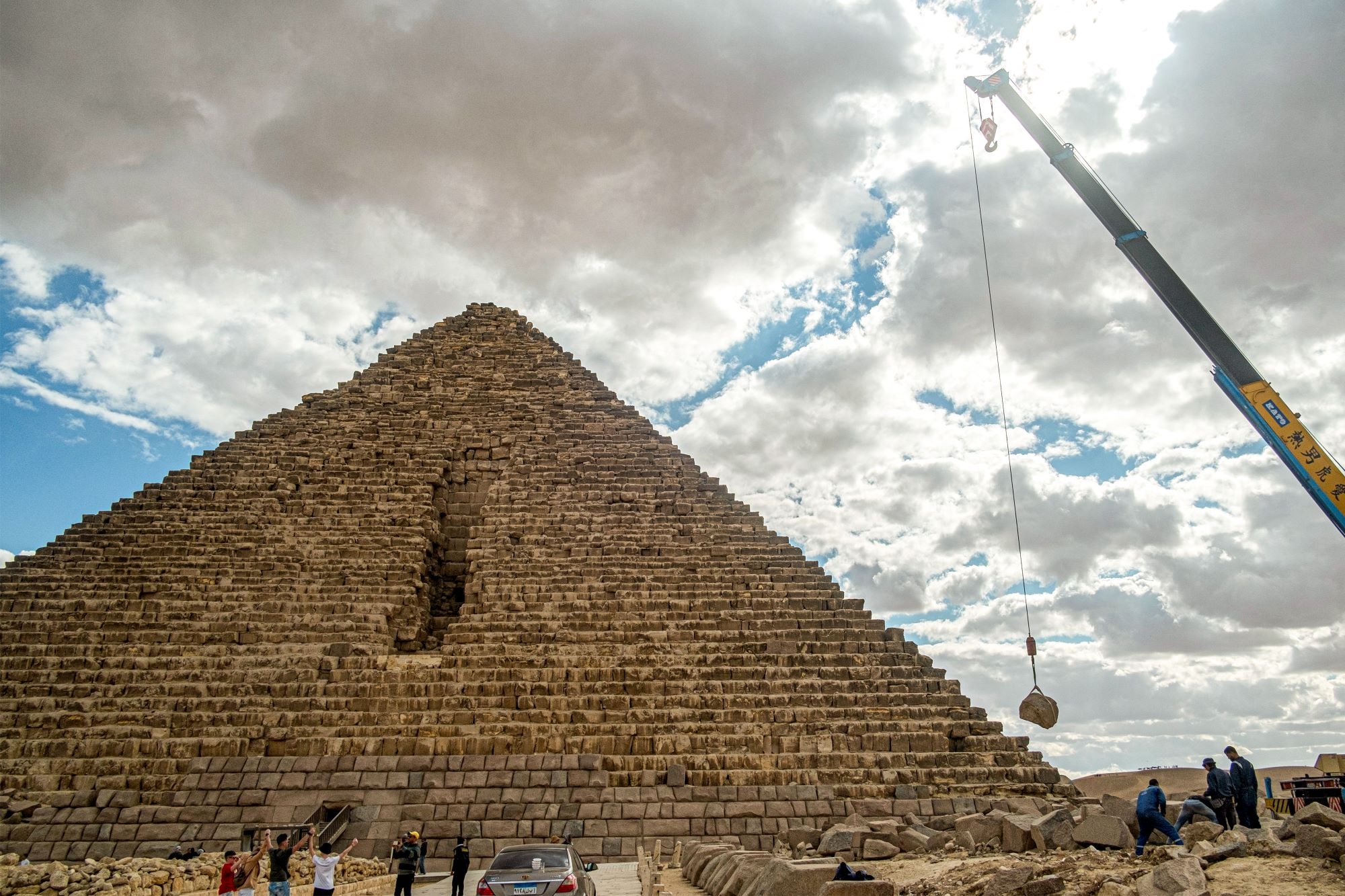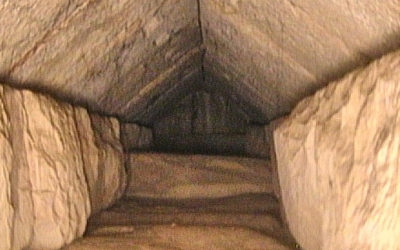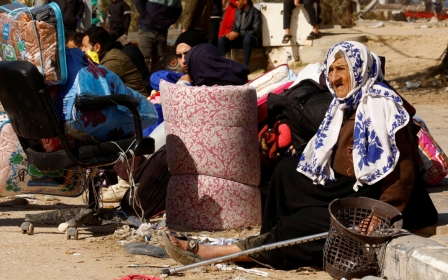Egypt pyramid restoration plans under review following outcry

Egypt said there would be a review of plans to restore Giza's Menkaure Pyramid after widespread anger over the project.
Videos were released last week showing an Egyptian official supervising restoration work at the pyramid, which is near the sphinx in Giza.
In one video, posted on Facebook, Mostafa Waziri, the secretary-general of Egypt's Supreme Council of Antiquities, hailed the "project of the century", with workers setting blocks of granite on the base of the pyramid.
The footage provoked fury from conservationists and social media users who feared the project would be a wholesale reconstruction of the famed monument and be detrimental to the preservation of its historic fabric.
On Saturday, the antiquities ministry announced that a committee would be formed to investigate the project.
In a statement, the ministry said it had set up a "scientific committee" to be chaired by Zahi Hawass, a well-known Egyptian archaeologist.
The Menkaure pyramid, built in the 26th century BCE, is the smallest of the three main pyramids at the Giza Pyramids Necropolis, west of Cairo.
Waziri, who is the head of an Egyptian-Japanese mission tasked with the project, said that it aims at reconstructing the granite layer that encased the pyramid when it was originally built.
He said work is planned to last for three years and will be "Egypt's gift to the world in the 21st century".
The announcement has sparked a backlash from archaeologists, who warned that the project might be in contravention of international conservation standards.
"It is a sad disaster," said Ibrahem Badr, an associate professor in archaeological restoration and conservation at Misr University for Science and Technology in Cairo. "[They] need to read the international conventions for restoration, and those dealing with Egyptian antiquities in particular."
Badr criticised Egyptian authorities for approving the project without consultation with experts.
"The amount of tampering with Egypt's antiquities and heritage has become far beyond imagination," he wrote.
"How can the pyramid be re-covered by a unilateral decision without taking the opinion of specialists in restoration sciences and archaeology?" he asked.
Middle East Eye propose une couverture et une analyse indépendantes et incomparables du Moyen-Orient, de l’Afrique du Nord et d’autres régions du monde. Pour en savoir plus sur la reprise de ce contenu et les frais qui s’appliquent, veuillez remplir ce formulaire [en anglais]. Pour en savoir plus sur MEE, cliquez ici [en anglais].





